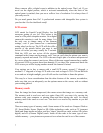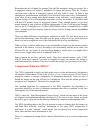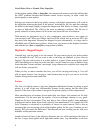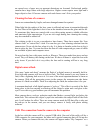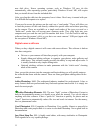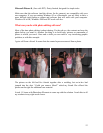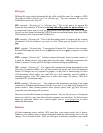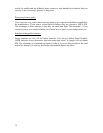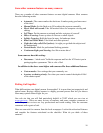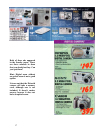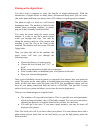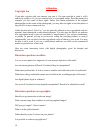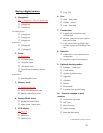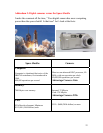
19
Addendum
Copyright law
If you take a picture with your camera, you own it. You can copyright it, print it, sell it
and freely modify it. If you use someone else’s copyrighted image, from the internet for
example, you lose some of these rights. Unless you obtain permission of the original
photographer or the owner of the photograph, you may have no rights to use that photo or
any part of it in any commercial way.
Under the principle of “Fair Use,” you are generally allowed to use copyrighted work for
personal, non-commercial or educational purposes. You also may be able to use portions
of a copyrighted work it your use constitutes a “transformative” use, such as commentary
or parody. In general, as long as you are not selling the resulting product, or using it
commercially, you can freely use the copyrighted works of others in your work. You may
be able to use a work if you use a small portion and have no effect on the commercial
market or potential use of the work.
Here are some interesting issues with digital photography, good for thought and
discussion.
Discussion questions on ethics:
You see a news photo in a magazine: Is it an accurate depiction of the truth?
Are advertising pictures different? Can/should they be manipulated?
What about political ads: Is it ok to remove wrinkles and whiten the teeth of a politician?
What about taking undesirable people out of political ads, or adding people of diversity?
Are digital photos legal as evidence?
Can you tell if a photo has been digitally manipulated? Should it be identified as such?
Discussion questions on copyrights:
Should you get permission to alter an image?
Who owns an image that combines several copyrighted images?
Will you get caught? - Does it matter?
What is in the public domain?
When should you put © notices on your photos?
Is it possible to enforce copyright laws?



